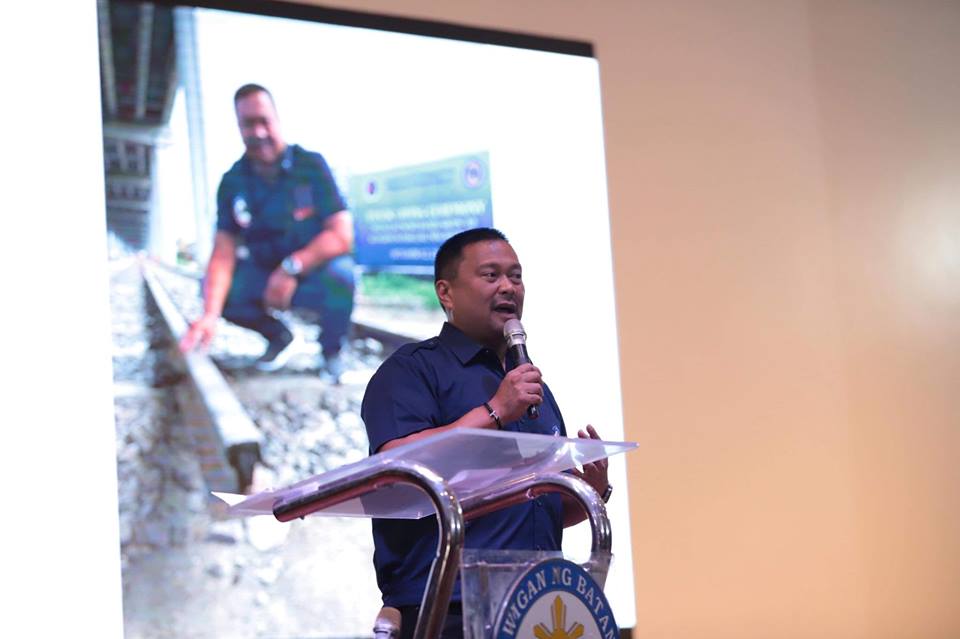News
Ejercito files bill boosting fight vs. cancer

“Cancer pushes Filipino families deeper into poverty. The associated costs of screening and treatment are catastrophic. The economic burden imposed is overwhelming.” (File Photo: JV Ejercito/Facebook)
MANILA — Significant steps have been taken in the fight against cancer with the passage of a bill seeking to institutionalize a national integrated cancer control program in the country.
Senate Bill No. 1850, sponsored by Senator Joseph Victor “JV” Ejercito, is expected to pass on third and final reading when Senate resumes session on November 12.
Ejercito, chairman of the Senate committee on health and demography, said the bill seeks to address various gaps in cancer care and integrate policies and programs for its prevention, detection, correct diagnosis, treatment and palliative care, pain management and survivorship or end of life.
“Through the National Integrated Cancer Control Act, we can give cancer patients a choice, we can give them hope — hope that they will have an equitable and affordable cancer treatment and care, especially for the underprivileged and marginalized Filipinos,” he said in a news release Tuesday.
Ejercito said cancer is the third leading cause of adult death in the Philippines and fourth in child morbidity.
The Department of Health (DOH) estimated up to eight deaths per day for childhood cancer and up to 11 new cases and seven deaths every hour for adult cancer. There are approximately 110,000 new cancer cases and more than 66,000 cancer deaths each year.
A recent study conducted by the International Agency for Research on Cancer (IARC) showed the mortality ratio among the poor was quite high. The study attributed the high number of deaths among patients with cancer to weak health systems, limited access to quality cancer care and partly to the late diagnosis of common cancers.
“Undoubtedly, cancer has become a global health and incidence rates are rising. The study estimates that in 2012 more than 6.7 million people developed the disease and that this will rise by almost 60 percent translating to over 10.8 million people who will be diagnosed with cancer in the next 14 years,” Ejercito said.
Senator Sonny Angara, co-sponsor of the bill, said a study conducted by the George Institute for Global Health found out that of the 908 Filipino cancer patients who participated in the study, majority experienced economic hardships.
“Cancer pushes Filipino families deeper into poverty. The associated costs of screening and treatment are catastrophic. The economic burden imposed is overwhelming,” Angara said in his sponsorship speech.
“This bill will establish a National Integrated Cancer Control Council whose sole focus is to implement programs that will not only provide comprehensive, accessible and affordable cancer treatments for all cancer patients, but will also work on minimizing the incidence of preventable cancer cases,” he added.
Under the bill, the Philippine Health Insurance Corp. (PhilHealth) shall expand the benefit packages to include screening, detection, diagnosis, treatment assistance, supportive care, survivorship follow-up care and rehabilitation, and end of-life-care, for all types and stages of cancer in both adults and children.
Angara said PhilHealth has packages providing for leukemia, breast and prostate cancer treatments but these are limited and reportedly only cover about 11 percent of total health expenditures.
Once the bill is passed into law, all Health Maintenance Organizations (HMOs) would be required to cover genetic counseling and testing, cancer screening, diagnostic, and palliative care.
Cancer-related absences from work of member employees as well as voluntary members shall be covered and compensated by the sickness benefits of the Social Security System (SSS) and the disability benefits of the Government Service Insurance System (GSIS).
The bill would mandate the DOH, in collaboration with other concerned agencies, to encourage the underprivileged and marginalized people living with cancer to undergo the necessary treatment and care.
The bill shall also authorize the establishment of the Philippine Cancer Center, under the control and supervision of the University of the Philippines – Philippine General Hospital (UP-PGH), for the treatment and accommodation of cancer patients. The center shall also initiate research, in collaboration with other universities, hospital and institutions, for cancer prevention and cure.
Regional cancer centers shall also be established nationwide for the treatment and care of cancer patients. The center shall also undertake and support the training of physicians, nurses, medical technicians, pharmacists, health officers and social workers on good practice models for the delivery of responsive, multidisciplinary, integrated cancer services.
The bill also calls for the establishment of the Cancer Assistance Fund to support the cancer medicine and treatment assistance program. The fund shall ensure a steady supply of cancer drugs and cancer control-related vaccines to patients.
“We need to fight cancer as a nation: We must integrate cancer consciousness into our schools’ curriculum in a more systematic and enduring way. We must increase public funding for robust prevention of cancer, better screening and make cancer treatment and care affordable for all,” Senator Joel Villanueva, co-sponsor of the bill, said.
Aside from Ejercito, Angara and Villanueva, authors of the bill include Senate President Vicente Sotto III, Senate Pro-Tempore Ralph Recto, Senate Majority Leader Juan Miguel Zubiri, Senate Minority Leader Franklin Drilon and Senators Maria Lourdes Nancy Binay, Leila de Lima, Loren Legarda, Antonio Trillanes IV, Grace Poe, Cynthia Villar, Paolo Benigno Aquino IV, Sherwin Gatchalian, Richard Gordon, Gregorio Honasan II, Risa Hontiveros, Panfilo Lacson, Emmanuel Pacquiao, Francis Pangilinan, and Aquilino Pimentel III.





















